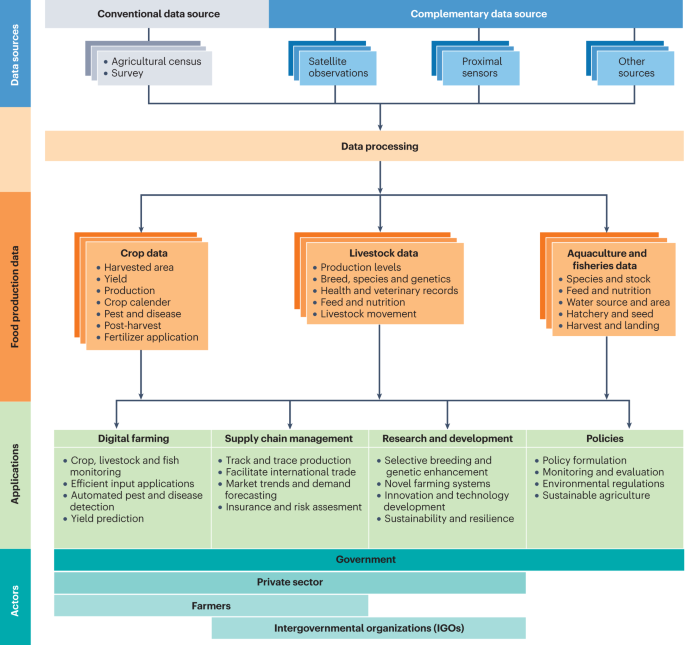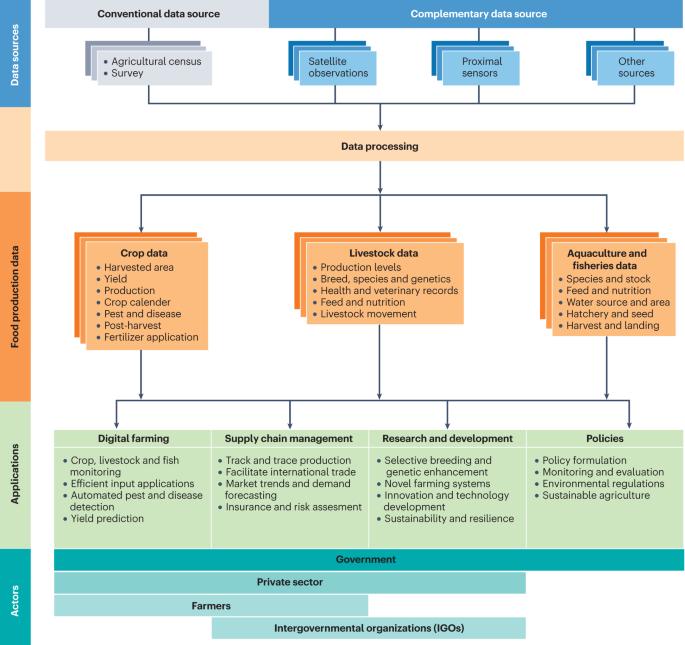Assessing and addressing the global state of food production data scarcity
引用次数: 0
Abstract
Food production data — such as crop, livestock, aquaculture and fisheries statistics — are critical to achieving multiple sustainable development goals. However, the lack of reliable, regularly collected, accessible, usable and spatially disaggregated statistics limits an accurate picture of the state of food production in many countries and prevents the implementation of effective food system interventions. In this Review, we take stock of national and international food production data to understand its availability and limitations. Across databases, there is substantial global variation in data timeliness, granularity (both spatially and by food category) and transparency. Data scarcity challenges are most pronounced for livestock and aquatic food production. These challenges are largely concentrated in Central America, the Middle East and Africa owing to a combination of inconsistent census implementation and a global reliance on self-reporting. Because data scarcity is the result of technical, institutional and political obstacles, solutions must include technological and policy innovations. Fusing traditional and emerging data-gathering techniques with coordinated governance and dedicated long-term financing will be key to overcoming current obstacles to sustained, up-to-date and accurate food production data collection, foundational in promoting and monitoring progress towards healthier and more sustainable food systems worldwide. Accurate and timely food production data are needed to promote food security and sustainability, but data scarcity exists across national and international levels. This Review examines data availability and reliability for crops, livestock and aquatic food production and recommends solutions to address data scarcity.


评估和解决全球粮食生产数据匮乏问题
粮食生产数据,如作物、牲畜、水产养殖和渔业统计数据,对于实现多个可持续发展目标至关重要。然而,由于缺乏可靠的、定期收集的、可获取的、可用的和按空间分类的统计数据,许多国家无法准确了解粮食生产状况,也无法实施有效的粮食系统干预措施。在本《综述》中,我们对国家和国际粮食生产数据进行了评估,以了解其可用性和局限性。在所有数据库中,数据的及时性、粒度(空间和粮食类别)和透明度在全球范围内存在巨大差异。畜牧业和水产食品生产面临的数据匮乏挑战最为突出。这些挑战主要集中在中美洲、中东和非洲,原因是普查实施不一致和全球依赖自我报告。由于数据匮乏是技术、制度和政治障碍造成的,因此解决方案必须包括技术和政策创新。将传统的和新兴的数据收集技术与协调治理和专项长期融资相结合,将是克服当前持续、最新和准确的粮食生产数据收集障碍的关键,这对于促进和监测全球实现更健康和更可持续的粮食系统的进展至关重要。
本文章由计算机程序翻译,如有差异,请以英文原文为准。
求助全文
约1分钟内获得全文
求助全文

 求助内容:
求助内容: 应助结果提醒方式:
应助结果提醒方式:


